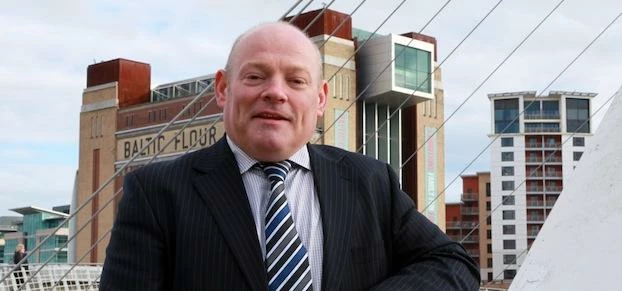
Partner Article
Budget 2015: KPMG Newcastle predictions
It’s important that the Chancellor supports this region’s businesses and helps them to keep building on the great contribution they already make to the economy in next week’s Budget says David Elliott, tax partner at KPMG in Newcastle:
“Creating conditions that stimulate innovation, investment and employment has got to be the primary objective of any government’s tax regime. Our clients are broadly pleased with the direction of travel in UK legislation: they don’t want headline grabbing initiatives - certainty and the rather dull lessening of the burden is what they’re after. So the message to the Chancellor is to focus on improving and simplifying.”
Investment
“From April the corporation tax rate for businesses across the board will be 20%; the lowest in the G20. This not only encourages investment and employment but, in matching large and small company tax there will also be welcome consistency, so I am keen to see this take effect.
“A greater commitment to capital investment would be welcomed by the many businesses with growth on their agenda. An extension to the 100% tax relief on plant and machinery spending of up to £500,000, which is due to expire at the end of this year, would be a positive move.
“Meanwhile, those bold enough to expand or upgrade into a new property should get even more relief. It’s currently rare for building costs to secure relief unless the spend is on property in an enterprise zone or a designated area. On the subject of property; if the Chancellor were to build on the Autumn Statement’s rate relief easing and discounting while the structural review takes place, there would be cheers from some high street businesses.”
Innovation
“The current R&D relief system, introduced by the previous administration, and improved further when the coalition moved it above the line, is a great example of the tax regime encouraging positive behaviour.
“While the increase in the R&D allowance to 230% for SMEs should help to stimulate innovation in this part of the economy, the complexity of the system is constraining its accessibility.
“Our recent survey of SME’s found only 5% have used R&D tax credits which seems too low. We would like to see a single gateway for all business help initiatives, as they are currently dispersed across HMRC and government departments. Additionally, securing the tax benefit is not as simple as it could be which risks putting off busy entrepreneurs and directors.”
Simplification
“Since it was noted by commentators some years ago that the UK’s tax legislation is the world’s most lengthy, there has been talk of simplifying the tax regime. It’s pleasing that it has been on the agenda and, yes, the removal of a significant sum of redundant legislation during the current term is welcome, but the size of the most recent finance bill is still far too unwieldy.
“It is sure to be one reason why reducing red tape came top of the SME wishlist of measures from government, according to our survey, notably ahead of rate reductions.”
Looking to promote your product/service to SME businesses in your region? Find out how Bdaily can help →
Enjoy the read? Get Bdaily delivered.
Sign up to receive our daily bulletin, sent to your inbox, for free.








 Raising the bar to boost North East growth
Raising the bar to boost North East growth
 Navigating the messy middle of business growth
Navigating the messy middle of business growth
 We must make it easier to hire young people
We must make it easier to hire young people
 Why community-based care is key to NHS' future
Why community-based care is key to NHS' future
 Culture, confidence and creativity in the North East
Culture, confidence and creativity in the North East
 Putting in the groundwork to boost skills
Putting in the groundwork to boost skills
 £100,000 milestone drives forward STEM work
£100,000 milestone drives forward STEM work
 Restoring confidence for the economic road ahead
Restoring confidence for the economic road ahead
 Ready to scale? Buy-and-build offers opportunity
Ready to scale? Buy-and-build offers opportunity
 When will our regional economy grow?
When will our regional economy grow?
 Creating a thriving North East construction sector
Creating a thriving North East construction sector
 Why investors are still backing the North East
Why investors are still backing the North East